How to choose a key finder?
The first step in choosing a key finder is to understand some of the main features. It's actually a very well designed device that can be extremely helpful in some situations and not at all in others.
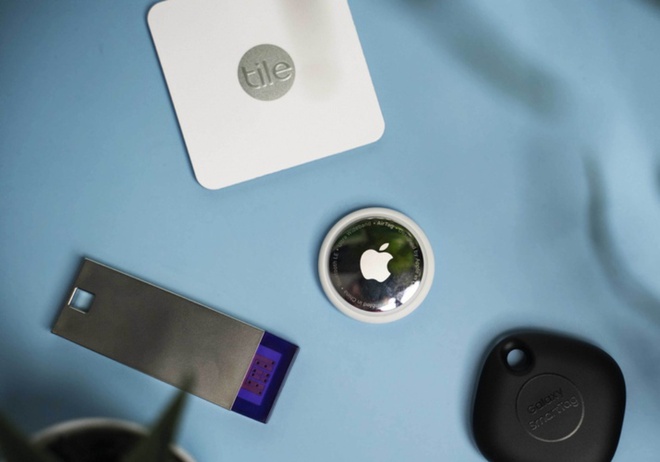
Reading time : 6 min
If you're reading this article, chances are you're one of those people who have to turn the whole house upside down to find your purse, keys, or wallet. Then your stress levels go sky high because you can't go anywhere without your blasted car keys! A key finder is just what you need.
This article explains how these types of tracker keyrings work, the technology used, and what they are best used for. Everything you need to know to make the best possible choice.
SUMMARY
The idea behind key finders
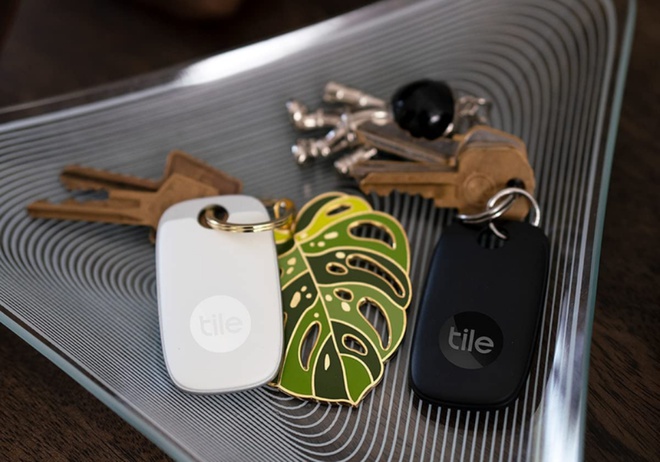
Tracker keyrings or Bluetooth GPS trackers don't have a SIM card or GPS chip like traditional GPS trackers. Because they use Bluetooth technology, they need less power. They're also much smaller, just the size of a keyring. There are some limitations though, read on to find out more.
Locating key finders
They’re quite easy to use: a key finder or Bluetooth GPS key tracker has a built-in Bluetooth chip with a maximum signal range of 50 metres between the transmitter (the GPS tracker) and the receiver (your phone). So the keyring sends a signal directly to your phone, allowing you to locate it if you are within range.
The main drawback is the maximum working range of 50 metres, especially as this distance is the best case scenario under ideal conditions. Ideal conditions mean an open area with no obstructions (like a wall). It's worth mentioning that nowadays, the newest Bluetooth GPS trackers can sometimes reach up to 80 metres (in exceptional circumstances).
The concept of Crowd GPS
How it works
As we mentioned above, the biggest drawback of this type of tracker is its maximum range of 50 metres. The concept of crowd GPS was introduced to solve this problem. This idea of "Crowd GPS” relies on other people who have the same Bluetooth GPS receiver. Any of these people who pass the Bluetooth GPS tracker will update the GPS position of your tracker using the Bluetooth and GPS on their own smartphone.
Of course, this raises the issue of the size of the community. This kind of tracker is much more likely to work well in a big city like London than in a village of 300 people. There are quite a few factors in this type of Bluetooth GPS tracker working effectively. The reality is, it’s more of a gadget than a real tracking and safety device.
The Apple Airtag
The Apple Airtag, for example, uses the large community of iPhone users around the world. This allows the tracking tags to work using the Bluetooth enabled iPhones that are already very popular in our communities. An Airtag is perfect for finding keys, wallets or handbags.
For anything else though (finding your dog or cat, tracking a car or a bike), there are other more suitable products. We strongly recommend that you choose the right tracker for each specific use. Just a few examples of brands with their typical uses: Invoxia for cars, motorbikes and bicycles, Apple or Tile for your keys, or Weenect for your beloved pets, Garmin to find an animal in dense woodland as they use radio frequency tracking devices.
Pros and cons of key finders
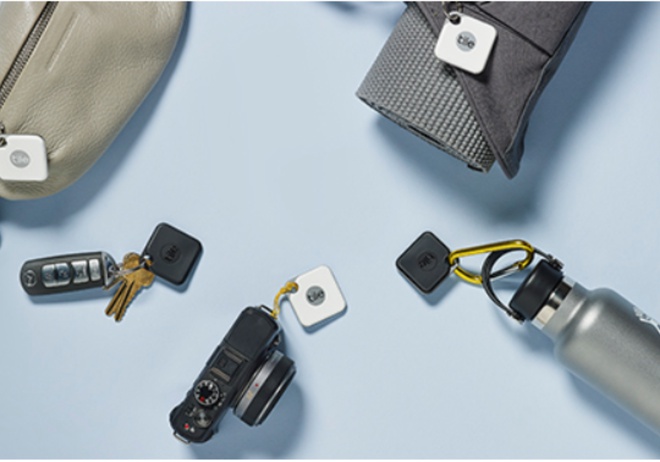
Advantages of Bluetooth key trackers
The main advantage of Bluetooth key trackers is that they allow very accurate positioning at close range. An example of this is the "hot and cold" system used by the Airtag. This extremely precise GPS positioning will help you find your car keys or your house keys wherever they are hiding in your home, with over 95% accuracy.
The ideal gift for Fathers’ Day! Colourful, customisable, with leatherette accessories, you can coordinate it with all sorts of styles, it can even be used as a bag charm. All these features go hand in hand with a very attractive price. This customised keyring tracker tag has proved to be one of the most popular smart devices of the last few years.
Drawbacks of Bluetooth trackers
This type of Bluetooth tracker has some major drawbacks. Firstly, as mentioned earlier, this type of system works using the community in the area around the tracker. So it works really well in crowded places, but what about in more rural areas? Will this kind of tracker work properly there?
Plus, crowd GPS only works if the person passing by has their Bluetooth AND their GPS turned on, and people are increasingly switching them off to preserve the battery life of their phone. This means that there's a good chance your tracker won't be able to update its position when someone passes by.
But it's the sheer over-reliance on it that makes this type of tracker a fancy gadget at best, not a serious solution. A key finder only pings the GPS position of a third party device (usually a phone), it never pinpoints its own position. It can never work on its own, which poses an enormous problem for any genuinely reliable use.
Things to check before buying a GPS
18 questions you need to ask yourself before buying a GPS tracker for your loved ones!
Some examples of key finders
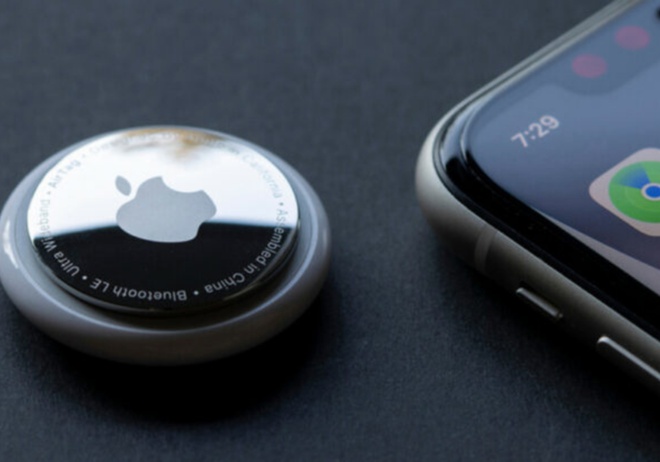
Tile Mate
For under 20 pounds, the Tile Mate has a 12-month battery life, is water resistant, and can play a ringtone to make it easier to find. The maximum Bluetooth range is 45 metres in an open area.
Wistiki Bluetooth tracker
You’ll pay around 35 pounds for a Wistiki tracker. It’s as small as its competitors but has a battery life of 2 years! It's water resistant, has a loud ringtone so you can hear it even if your keys are at the other end of your flat, and has a Bluetooth range of up to 100 metres in open areas. Its rectangular shape is similar to a USB flash drive. Unfortunately, this French company folded recently.
Nutale key finder
This stylish looking tracking tag will cost you about 20 pounds. Each of these small GPS trackers has a battery life of about 10 months. Nutale recommends that you buy them in packs of 4 (for about 50 pounds) so that you can attach them to or stick them onto a variety of different items. The associated app helps you find your belongings easily.
Apple Airtag
The popular Apple Airtag will cost you £35 in shops or online. Using the app and SIRI virtual assistant, you can locate your lost property in a matter of seconds. Its most obvious advantage is the large community of iPhone users out there, providing extensive coverage. Airtags have a battery life of about a year. Their stylish oval shape gives them an exclusive look and they can be personalised with a free engraving when bought from Apple.
For a leather key ring, case or other accessory from Apple, you can expect to pay an additional £45. This is an essential accessory as the Airtag on its own can't be attached to anything, it can only be slipped into a bag. Finding things is child's play for iPhone users with Airtags. However, it has a very limited range of about 10 metres indoors.
Why would you use a key finder?
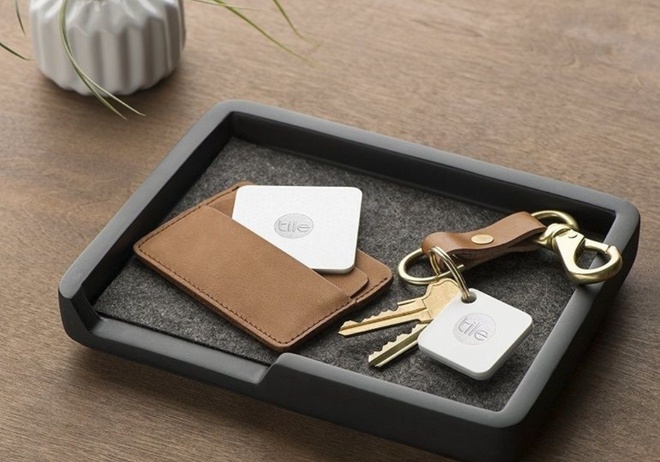
To find your everyday essentials
A Bluetooth key finder like an Airtag or Tile tracker will do the job perfectly to find your keys or your wallet. Apple Airtags, Tile Mates and Samsung SmartTags are all very small GPS trackers and are effectively little keyring tracking tags. Super handy to take wherever you go, whether clipped onto your keys or slipped into your handbag.
What's more, all these devices have a built-in ringer so you can find your phone even if it's fallen down the back of your sofa. Bluetooth allows distance-limited positioning, as it relies on the help of an entire community to enable positioning further than 50 metres away. This technology is designed for everyday items and isn't suitable for tracking a car, finding a bike or locating a person or pet, for example. These tasks need a different type of GPS tracker.
To find a lost pet
We strongly advise you not to use a key finder on your furry friend's collar. A Bluetooth key finder is almost completely useless when it comes to finding a lost pet. A lost dog or cat is often panicking and frightened and can move very fast. Any GPS tracker for dogs or cats should be able to offer real time positioning and, even more importantly, should work over an unlimited distance (which is not the case with Bluetooth trackers).
A Bluetooth tracker is more of a gadget than a safety device. There are too many variables involved for this type of tracker to actually be of any use in finding a lost pet.
Conclusion
A Bluetooth key tracker or key finder is more of a gadget than a reliable way of finding a lost pet. Too many things have to come together for it to work properly. On the other hand, it's great for finding everyday items and helps you save time looking for your keys or phone before you leave the house. The very precise GPS positioning of this kind of tracking tag can make your life a whole lot easier and so much less stressful.
Continue reading our guide
This article is part of a complete guide on the subject. Do not miss the next chapters.
Are you looking for the best GPS tracker ?
18 questions you need to ask yourself before buying a GPS tracker


